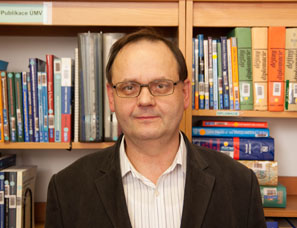 JUDr. Vladimír Handl, CSc.
JUDr. Vladimír Handl, CSc.
Born in 1957 in Prague, Dr Handl graduated in 1982 from the Moscow State Institute of International Relations, where he defended a thesis on German security policy in June 1990. From 1983-1996 he worked as a Research Fellow at the Institute of International Relations (Prague), and from 1994-1996 as the Institutes’ Head of Research. He spent short-term research stays at the Hessische Stiftung für Friedens- und Konfliktforschung, Frankfurt am Main, in September-December 1988; the Forschungsinstitut der Deutschen Gesellschaft für Auswärtige Politik, Bonn, in March-June 1992; the Foreign Policy Research Institute, Philadelphia, in February-April 1995; and the Stiftung Wissenschaft und Politik, Ebenhausen, in May 1995. From September 1993 - January 1994 he was seconded to the Foreign Policy Department of the President's Office in Prague and afterwards participated in the activities of an external expert circle at the Department (1994-1996).ternational Studies at the Faculty of Social Sciences, Charles University. He was guest lecturer at the New York University in Prague from 2002-2006.
In 1997-2000 he worked as a Research Fellow at the Institute for German Studies, University of Birmingham and contributed to the Economic and Social Research Council project “Germany and the Reshaping of Europe”, run by the Institute. He has been a Research Fellow of the Institute of International Relations, Prague since January 2001. In 2002-2003 he contributed to the project "Policy Transfer and Programmatic Change in the Communist Successor Parties of East Central Europe", run by the Institute for German Studies, University of Birmingham.
In his research, he concentrates mainly on German foreign, security and integration policy as well as on Czech foreign policy. He has been working also on Czech-German relations and on Czech foreign and security policy. At the Institute for German Studies he mainly examined the policy of the Federal Republic of Germany towards the four closest East Central European countries (the Czech Republic, Hungary, Poland and Slovakia) in the process of their integration into the EU and NATO. More recently, he has also focused on the issue of the transformation of the communist successor parties in Central Europe.
He is a part-time lecturer at the Institute of International Studies at the Faculty of Social Sciences, Charles University. He was guest lecturer at the New York University in Prague from 2002-2006.